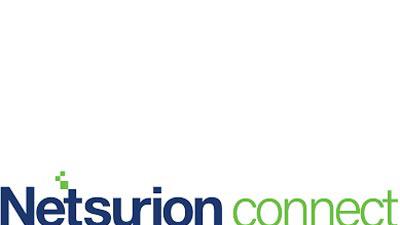CRN Interview: Netsurion CEO Watson On Entering The SD-WAN Market And The Growth Opportunity For Partners
Netsurion CEO Kevin Watson speaks with CRN about how Netsurion Connect adds a connectivity element to the company's existing portfolio of security and compliance products.

Beyond The Firewall
Managed firewall company Netsurion is jumping into the fast-growing market for software-defined WAN technology with the launch of Netsurion Connect, an offering CEO Kevin Watson says will fuel growth within its existing customer base, as well as expansion into new accounts.
With the addition of the Netsurion Connect SD-WAN offering, the Fort Lauderdale, Fla., firm adds a connectivity element to its existing portfolio of security and compliance products. The SD-WAN offering improves network performance and reduces cost while allowing for simple, flexible control as Netsurion's customers in the retail, restaurant and hospitality sectors begin using new technologies like mobile billing, touch-screen menus and digital signage, Watson said.
Netsurion developed the Connect SD-WAN offering over the past couple of years, and Watson said a few hundred preliminary customers are already using it. The offering is also an opportunity for Netsurion to go deeper with channel partners than it has with its managed firewall products in the past, and to protect its turf as a rapidly growing number of vendors enter the SD-WAN market.
"Because of the ability of our partners to control it from a single pane of glass and have multi-tenancy built into the box, it allows them to offer their customers greatly eased deployment," Watson said. "Having that technology is really going to give us some additional benefit over the managed firewall space."
What follows is an edited excerpt of CRN's conversation with Watson.

How and why is Netsurion getting into the SD-WAN business?
We're a 25-year-old business that has traditionally been in the managed security space; managed firewalls in restaurants, retailers, hospitality. We've been doing that for more than 10 years. We got into SD-WAN because we have been providing managed firewall services through Juniper and Fortinet for a number of years and we've seen tens of thousands of endpoints in locations we manage, and some of the ups and downs those customers have experienced over the years. Last year, we launched new products to increase security through SIEM-level services to companies that don't have the technical resources to manage SIEM.

And that goes hand in hand with SD-WAN?
It's similar. Where does that need to go to continue to serve this part of the market? Great SD-WAN technologies have come out over the last two years, but none of them are designed to handle our particular type of customers. It's not the typical branch office. This is really a stand-alone entity that doesn't have a defined set of users, that doesn’t have any technical resources and, frankly, doesn't want to spend a lot of money. They have some very unique requirements in stable connectivity and security.

How did those requirements shape Netsurion Connect?
We took a security-first, connectivity-second approach to SD-WAN. It has all the bells and whistles that you've seen from a lot of the SD-WAN providers to date, the single-pane-of-glass management, the cloud-based orchestrator that allows you to manage a wide number of locations from one place, the ability to deploy a unit and have it phone home, pull down the appropriate configuration. We added the concepts of being able to pull in network resilience, which is very important to our customer base, and also embedded multiple layers of security into the box itself. For our customer base, it's very much a one-stop shop for connectivity and security.

How much growth do you think you can drive for Netsurion and your partners with an SD-WAN solution?
We see a significant shift, and it's happened over the last year or so. Almost every one of our managed firewall deployments in the last year or so has included a cellular backup component. It's similar to if you go back three or four years and everybody started embedding Wi-Fi into their firewall deployment. That became standard. Now, we've seen something similar from a cellular perspective. That always-on availability for a secondary WAN connection has become something that virtually every single one of our customers is asking for. Because of their makeup in the distributed location world, they're not coming to it saying, 'I have this expensive UTM solution that I want to be able to continue to use so give me an SD-WAN solution that allows me to use my UTM.' We're seeing, at best, we have a firewall embedded in our carrier's modem. We've brought more of a holistic solution to the market and we definitely believe this is the future, and it will certainly drive a significant portion of our business going forward.

What do you see as the big competitive opportunity for Netsurion in the SD-WAN market?
In our customer base, you have a very, very simplistic environment. You have an ISP-based router, and typically some variant of a network behind that. It is not a user-based network. A lot of the other SD-WAN providers are deciding traffic based on users or applications. What we see is a network where you have a large number of ill-defined users because they're transient employees. They're guys working in a retail location or a restaurant. They're not defining them as users. They're defining the network itself, and they're defining what parts of the network, what segments of the network allow for certain types of traffic. Some of that is going to be at the edge. Other traffic is going to come back to our hosted, next-gen firewall where we're providing a full suite of next-gen firewall services to that segment. Embedded in the box is a cellular modem.

Why is that important?
One of the things we're seeing is our customer base is not running out and buying two traditional WAN connections. They're just not. By providing them a backup cellular service, we're giving them a very simple, secondary WAN connection that is embedded in the box. There's no additional equipment to buy. We're opening the door to always-on connectivity, which for retailers, restaurants and hospitality is becoming critical not just from a credit card processing standpoint, but from mobile ordering and direct connectivity to the store. That wasn't as important a couple of years ago, but it is now becoming critical even for a simple restaurant that wants to get into the mobile ordering space.

Does this give you the potential to grow your customer base or expand it into new areas?
We think it does. We believe it gets us into some other customers that had traditionally shied away from managed firewalls from both a cost and complexity standpoint. This allows us to provide some additional services at a better price point. When you layer on some of the aspects of Netsurion Protect, which includes some of the SIEM services and Netsurion Comply, which includes PCI services, you get this whole suite of services that can be delivered even to branch-office-type locations, which makes us more competitive with some of the other SD-WAN vendors, but maybe on a slightly more simple deployment. It also takes us into some other areas where traditionally they haven't seen the need for firewalls as a stand-alone service, but with increased connectivity and embedded security, it gives them a rationale to get into this market.

How long did it take to develop the Netsurion SD-WAN solution, and how many customers are using it now?
It's gone back awhile. This is several years' worth of development in terms of getting a box in the field that we have tested, that we feel comfortable with. It's had some initial deployments. It's out there in several hundred locations. It has shown to be easily deployed and highly resilient.
Is Netsurion Connect ready to roll out today? Will you be releasing it bit by bit or all at once?
It's a little bit of both. It is ready today. We're starting with some select customers that have shown interest and who we've been speaking to. We're going to start with our existing customer base with our new rollout and we'll be rolling it out to new customers in a month or so. That's just a matter of scalability internally. From a feature-set perspective, we have a good 18 months' worth of additional features that are already in the works going forward. We expect to release this this month, then have a very rapid deployment schedule of additional features.

What are the most important things for your channel partners to know about the solution?
What's interesting here is in the managed firewall space, it's always been a bit of a challenge for us to work with channel partners. We've had great success in working with our channel partners on our Netsurion Protect products. It's very easy for us to give our partners something to work with. Firewalls had been a little trickier. This, because of the ability of our partners to control it from a single pane of glass and have multi-tenancy built into the box, allows them to offer their customers greatly eased deployment. Having that technology is really going to give us some additional benefit over the managed firewall space. We made sure to specifically target quality of service, specifically in terms of cloud VoIP, which is something that has been a demand from our customers for a while. SD-WAN is much better at providing the flexibility to define certain parameters around that, define multiple layers of quality of service among the WAN path. It enables this market to continue to do business easily.